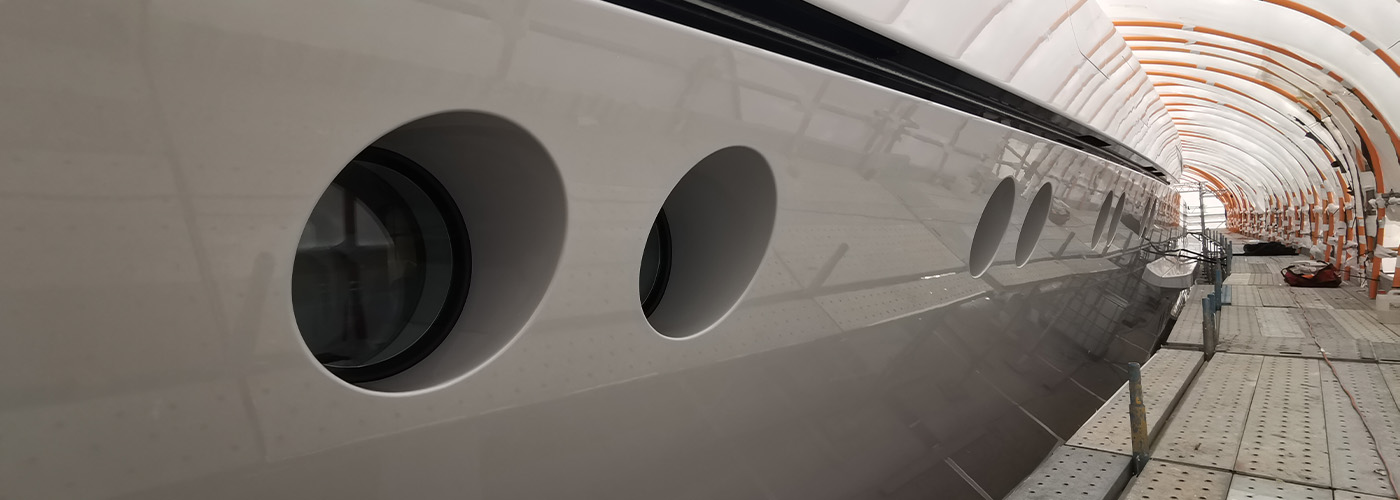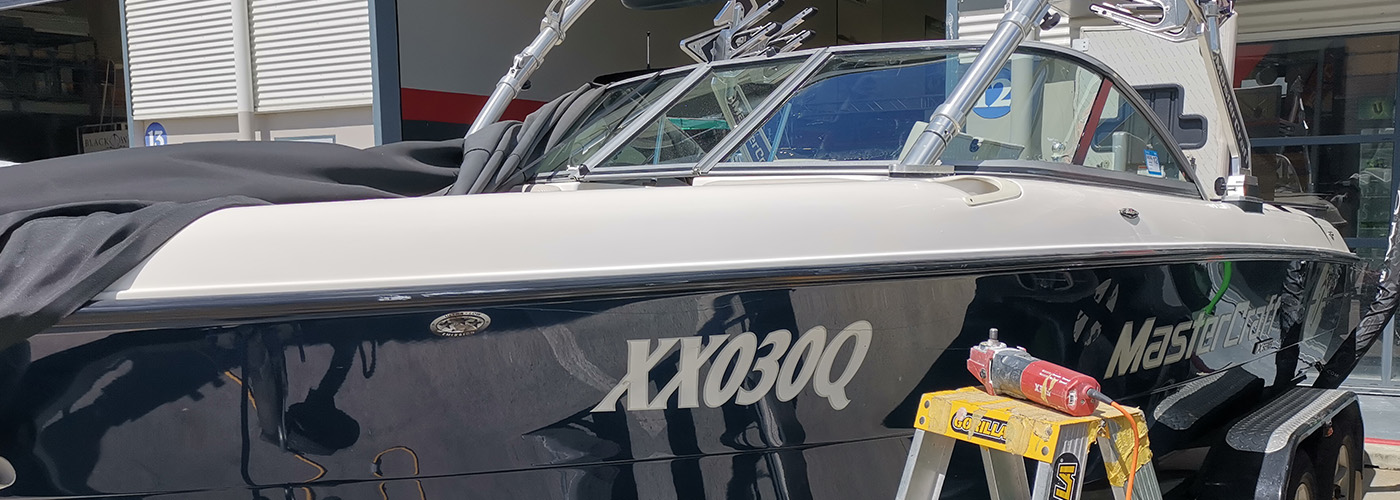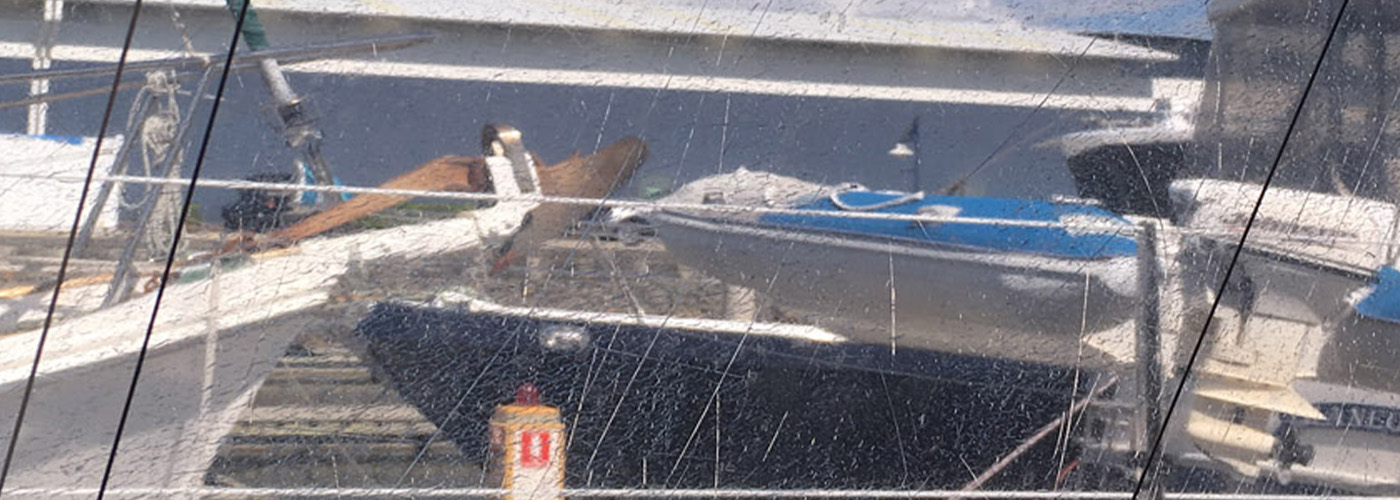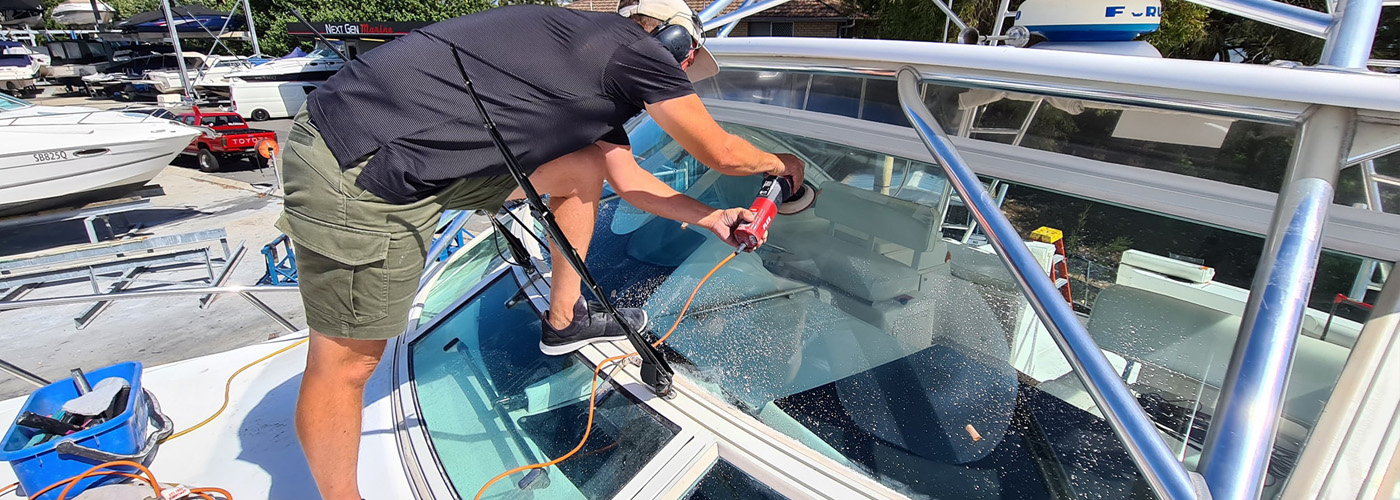Marine Glass Repair
Every day you will find our engineers working on marine precincts and Ports repairing damaged or scratched Glass or Acrylic products on Ships, Yachts, Cruisers, flybridges and small boats.
Working closely with various companies in the marine industry we have successfully repaired many high end luxury yachts to large fleets of Ferrys such as Translink, Gold Coast City Mariner, Moreton Bay Ferry Group.
We provide a full clean-up service and a complete maintenance plan to ensure a more sustainable planned budget solution, with cost-effective solutions for different types of damage.
There is no Glass we cannot repair.
Salt Water etches to the glass. Same as the Hard Water Corrosion found in household Showers.
there is two types of corrosion.
Stage 1 and Stage 2.
Stage 1 can be removed DIY and by most emplyed cleaners or detailers and yes there is many effective ways at getting it off.
We can provide you with a Glass Polish Hard Water Corrosion polishing paste that can remove Stage 1 damage.
Stage 1 Hard water Corrosion:
It creates a cloudy appearance but doesn’t actually cause damage to the glass, so it can be removed from the surface of the glass.
The Iron in the glass that makes it Hard reacts with the Salt that has been splashed on the glass or is just in the air which is unavoidable.
Stage 2 Hard water Corrosion:
If the glass is allowed to have salt remain on the glass for too long a period of time the salt eats in to the glass and creates pits in the surface of the glass.
The corrosion is then permanently bonded to the surface of the glass.
When the minerals start to eat away and damage the glass leaving etching, it is classified as stage 2 and this can only be removed by grinding the Surface back below the etching and then polishing it back to new.
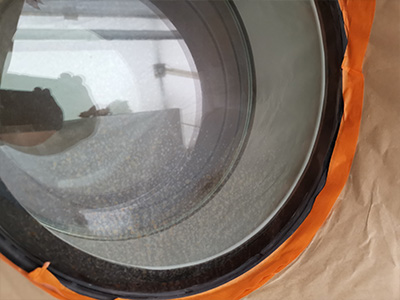
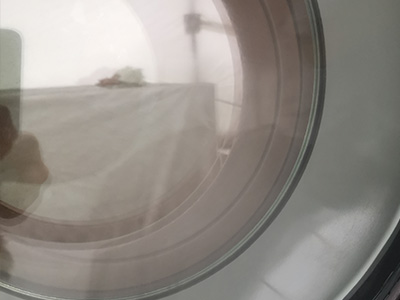

Sealink Ferry Corrosion 
Salt corrosion on Windshield 
Gold Coast Whale Boat Windscreen 
Luxury Yacht Shower Screen Corrosion 
Scratches to New Skit Boat glass 
Moreton Bay Ferry Corrosion 
Brisbane City Cat Scratches
Acrylics / Plexi Glass
Marine Plastics are damaged frequently. The location on most Boats, Yachts and Ferrys make these produts seceptible to damage. Scratches caused by wiper marks on the windscreens can reduce visibility to a dangerous level. We polish scratched marine acrylic type products with zero distortion.
Crazing caused by solvents is very common. We can grind down the surface until all surface crazing is taken out. The sheet is then polished to restore it like new.
Poly(methyl methacrylate) (PMMA), also known as acrylic or acrylic glass as well as by the trade names Crylux, Plexiglas, Acrylite, Lucite, and Perspex among several others, is a transparent thermoplastic often used in sheet form as a lightweight or shatter-resistant alternative to glass.
Used widley in the Marine industry for their lightweight and impact resistance over glass.
What causes Crazing in Acrylics / Plexi Glass?
The type of stress involved with surface crazing is most usually a tensile stress. The following is one explanation of this cause and effect. The stress tends to pull apart the tightly coiled polymer chains forming the plastic sheet material.
This condition makes it easier for solvent molecules to penetrate the surface of the plastic and diffuse throughout the polymer chains. The tightly wound polymer chains then begin to slip apart from one another and result in the appearance of very small cracks on the surface of the plastic sheet.
Depending upon the amount of stress and the aggressiveness of the environment (i.e. chemical solvent), the small cracks grow in size and may even cause breakage of the plastic sheet.
How to avoid crazing:
Avoid aggressive Liquids or solvents when cleaning overspray, glue, dirt, etc. from the surface.If a cleaning liquid or organic solvent is used, it should be dried as soon as possible to avoid chemical attack on the acrylic surface.Depending upon the stress level in the acrylic surface, the time required for chemical attack can be very short. Crazing can be minimized and/or eliminated if no aggressive liquids or solvents are used.

